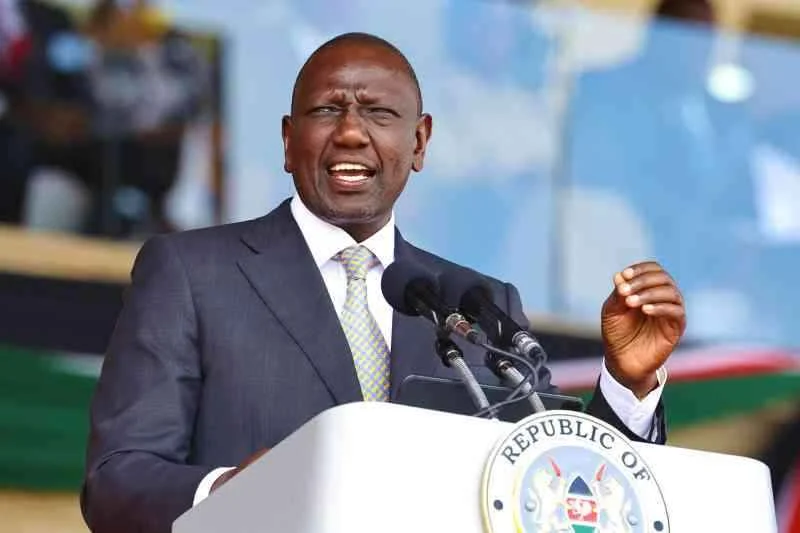
Summary:
President William Ruto restates his dedication to eliminating corruption within the judiciary, responding to critiques from legal circles. Tensions escalate as Ruto attributes setbacks in crucial government projects to corrupt judicial officers.
President William Ruto, once again, pledges to eliminate corruption within the judiciary, pointing fingers at specific officers obstructing his government’s objectives. In a determined statement, Ruto expresses his resolve to pursue unethical individuals within the judiciary until they are removed.
On his online platform, Ruto firmly declares, “Not a single cent will be used to bribe nobody. Mambo ya wafisadi wote ni yale nilisema.”
Responding to criticisms from Senior Counsels Ahmednasir Abdullahi and Paul Muite, who questioned Ruto’s stance against judicial impunity, the President affirms his commitment to purging corruption from the judiciary. Ahmednasir highlights the challenges of corruption and judicial impunity faced by lawyers and clients in courts, while Muite confirms past compromises in court cases.
Ruto reassures Ahmednasir, stating, “You warned me of sabotage by corrupt judicial officers. I told you there are many good officers in the judiciary, and that we will root out the corrupt. We shall.”
Addressing Muite, he declares, “The impunity of bribing judges so as not to derail, delay, or sabotage Kenya’s imminent transformation will never happen under my watch.”
This renewed commitment comes amid escalating tensions between Ruto and the judiciary, with the President attributing setbacks in crucial projects like Universal Health Care and affordable housing to a handful of corrupt officers.
Chief Justice Martha Koome responds by condemning Ruto’s remarks and cautioning against interference with ongoing court matters.
In an internal memo, CJ Koome urges judges and judicial staff to fulfill their duties without undue influence, emphasizing that the judiciary will remain uncompromised.
She expresses concerns that public declarations of corruption without procedural reporting mechanisms could erode trust in the judiciary and democratic governance. CJ Koome reaffirms the judiciary’s commitment to addressing any officer found violating judicial conduct.
